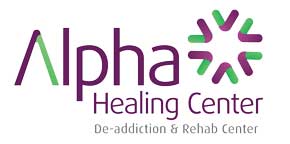Millions in India are caught in the grip of cannabis addiction. Unfortunately, most of them face challenges and stigma on their road to recovery. In this article, we will expose the real face of cannabis dependency by looking beyond and then give some hope through effective rehabilitation therapies such as therapy, mindfulness, and family support. The article seeks to walk you through addiction’s maze and help you come out on the other side, breathing.
Understanding Cannabis Addiction
A lot of marijuana users argue that it’s just a chill bill without understanding the silent grip of addiction that it causes. THC, a psychoactive compound in the drug, is known to alter brain chemistry and disrupt cognitive function, leading to a “high,” which is thought to be mere recreation. This feeling, however, comes at an expensive price. As one builds tolerance against the drug, the ‘chill’ translates to anxiety, paranoia, or even psychosis. Studies talk about poor memory retention, lack of motivation and high chances of having mental problems among others as the effects of cannabis over some period.
Understanding addiction isn’t about spotting or giving names to addicts. It is all about seeing the connections between biological and psychological weaknesses that lock people into such dependence. Genetic predisposition, social pressures, and even underlying mental health conditions can tip the scales toward addiction, making it crucial to approach recovery with empathy and understanding.
Cannabis Use in India
Cannabis or ganja use in India is a contentious issue with deep roots. The intoxicating effects of the plant are celebrated through religious rituals, while its recreational use is criminalized by law. More than 30 million Indians reportedly consume it, and this necessitates an open discussion regarding its use and impact on people’s lives.
Societal perception of cannabis often downplays its addictive nature. Nevertheless, there has been an alarming increase in addiction cases. The stories of shattered lives and broken families that come from major Indian cities to quiet villages whisper of a growing problem. Once we accept how widely marijuana is consumed, it will be possible to begin establishing a network for those caught up in it and helping them overcome the problem.
How to Identify Cannabis Addiction
Recognizing marijuana dependence can feel like making your way through a smoke-filled room; it’s not a simple feat. Early signs are usually obscured due to widespread recreational use. But even slight changes in behavior can serve as telltale signs. For example, regular mood swings, seclusion from friends or academic activities, and poor personal hygiene can be considered warning signs. Clothing or rooms smelling heavily of hashish, the constant need for “chill time,” and obsession with getting it can be indications of dependency on the herb.
The need to communicate openly with one another is necessary for cannabis addicts seeking rehab. It is important to listen without judgment, offering support and guidance rather than accusations. Remember, addiction is not a moral failure but a medical condition that requires compassionate intervention.
Destigmatizing Cannabis Addiction
Breaking the shackles of stigma is crucial in creating a conducive environment for recovery. Educational campaigns that highlight the scientific understanding of addiction can dispel myths and foster empathy. Involving community leaders as well as religious figures in having open dialogues normalizes discussions on cannabis use and dependence, helping individuals seek assistance without feeling judged or fearing anything.
Media representation also plays a significant role. By portraying individuals struggling with cannabis addiction not as outcasts but as relatable individuals deserving of support, we can dismantle the walls of stigma and pave the way for acceptance and recovery.
Counseling and Therapy
In a maze of addictions, therapy is a light in the darkness. Cognitive-behavioral therapy (CBT), for example, teaches addicts how to handle cravings and avoid a return to substance use (relapse). Through individual counseling sessions and group therapies, individuals are able to share their experiences safely, offer support, and feel loved. Families of addicts find it helpful through family counseling to address codependency and restore broken relationships.
Mindfulness and Meditation
The frenetic mind, constantly seeking the next “high,” finds solace in mindfulness practices. Meditation techniques anchor individuals in the present moment, fostering self-awareness and emotional regulation. Yoga, with its emphasis on breathwork and movement, helps manage stress and anxiety, common triggers for relapse.
The Bottom Line
Cannabis addiction recovery is a smoke-screened and stigmatized voyage, but there are prospects for brighter days. Identifying the signs, talking about it openly, and seeking professional assistance can set one free. Just remember that addiction is not about being weak-willed; rather, it’s a task that we can conquer together. Thus, if dependency on cannabis is destigmatized while establishing support systems through which recovery may be envisaged, people will begin to recover their lives in a single breath at a time. So, let’s break the bong of denial and light a torch of hope because each puff deserves another chance.







